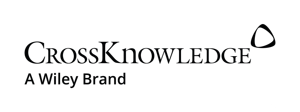
CrossKnowledge Unveils Diagnostic Tool for Digital Learning Maturity
CrossKnowledge release 12 question assessment providing insight into the 6 key areas of digital learning maturity for organisations.
5 years ago the World Economic Forum predicted that 65% of children entering primary schools today will end up working in new job types and functions that are yet to be created.
Meanwhile the business imperative has never been more clear — technological change combined with the challenges of the pandemic demonstrate a critical need to focus and invest in reskilling and upskilling to ensure your organisation has the capabilities that are required for the future.
The recent speed of change in skills has been driven by four key forces:
- increasing job automation
- decreasing talent availability
- decreasing mobility of skilled labour
- ageing talent
Organizations need to start preparing for their skills landscape today to avoid losing out in the future.
For this to happen effectively, a positive attitude towards evolution should be filtered top-down to your workforce, encouraging them to take ownership of their professional development and the skills required for the future. This cultural shift will build strong foundations for ongoing skills acquisition and learning maturity.
This cultural shift will help to attract, retain, and grow the key talents, as well as speeding up time to competencies. Upskilling and reskilling your organisations workforce will become the key concern for organisation leaders, as the PWC CEO survey of 2020 stated: ‘Businesses cannot hire their way over this skills gap at a price they can pay, so the imperative is clear’.
For such an upskilling strategy to work, it needs an enterprise-wide, unified approach. The goals are more than an HR or L&D objective — it should be an ongoing whole-business strategy.
The starting point for these changes is to understand your organisations digital learning maturity level. Digital learning maturity is the ability to align to constantly changing business priorities; to actively explore the context of the people in the workplace; to shift L&D mindset to becoming business enablers; and to constantly reflect and improve based on evidence and outcomes.
The CrossKnowledge diagnostic tool can survey your skills landscape in a matter of minutes. By answering a few short questions that get straight to the heart of your learning ecosystem, after completing the short assessment you will receive a tailored report and action plans to help identify areas of opportunity.


